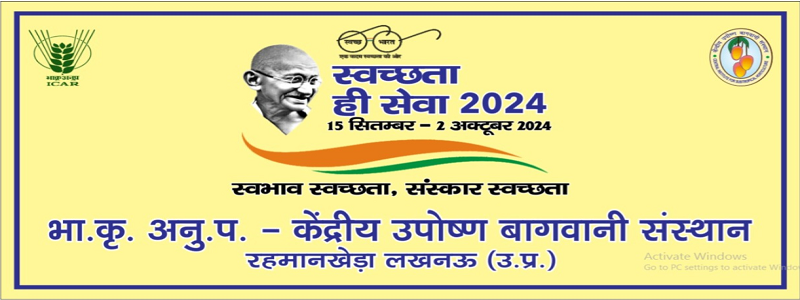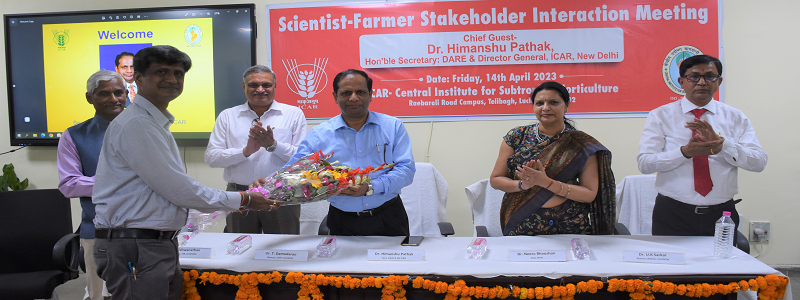About Us
Facilities
Downloads
For Farmers
Publications
About CISH
The Central Institute for Subtropical Horticulture (CISH) was started as Central Mango Research Station on September 4, 1972 under the aegis of the Indian Institute of Horticultural Research, Bangalore. The Research Station was upgraded to the level of a full-fledged Institute, named as Central Institute of Horticulture for Northern Plains on June 1, 1984. The Institute later renamed as Central Institute for Subtropical Horticulture (CISH) on June 14, 1995, is serving the nation on all aspects of research on subtropical fruits.
The Institute has two experimental farms, one at Rehmankhera approximately 25 km away from the city and the other at Raebareli (R.B.) Road, in the city of Lucknow. The experimental Farm at Rehmankhera has an area of 132.5 ha comprising 4 blocks (block I-15.5 ha, block II-35.5 ha, block III-37.42 ha & block IV-44.08 ha) and R.B. Road campus has an area of 13.2 ha. To meet the challenges in cutting edge areas of research on subtropical fruits, Institute has modern nursery facilities, well-established orchards and fully equipped laboratories. A hostel-cum-guest house is situated at R.B. Road Campus for accommodating farmers, trainees and experts. The Institute has one type-5, two type-4, six type-3, six type-2 and six type-1 quarters at the Raebareli Road Campus. Read More..







